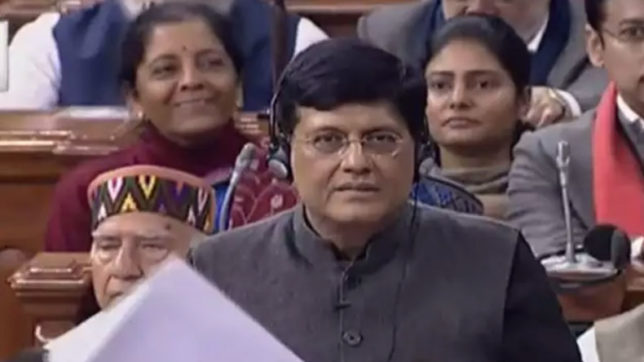Today, the Interim Budget of the Modi government was presented with major announcements aimed at the welfare of farmers and the middle class. The analysis of Budget gives a sense that it has been directed to Bharat i.e. the real India which includes farmers, traders, middle class, small businessmen and unorganized sectors. The budget has majorly been focused upon the middle class and poor of the country.
In a major announcement for the benefit of farmers and the rural economy, the government has decided to initiate a cash transfer of 6,000 rupees per year for landholders up to 2 hectares. The total amount allocated to this scheme named Pradhan Mantri Samman Nidhi is 75,000 crore rupees for the fiscal year 2019-20. This will be implemented retrospectively from December 1, 2018, and would benefit almost 12 crore farmers of the country.
The NDA government has doubled the income tax exemption limit from the existing 2.5 lakh rupees. As of now, the tax on income up to 5 lakh rupees stands at 10 percent. The taxpayers will get a full rebate on the tax paid for the income up to 5 lakh rupees.
Moreover, the workers in the unorganized sector will get a 3,000 rupees monthly pension under the mega pension scheme announced in the 2019 Budget. The retired senior citizen of 60 years of age or older would be able to avail benefits of this scheme. 500 crore rupees have been allotted to this scheme in this budget. This is set to benefit almost 10 crore workers of the unorganized sector in the country.
The number of beneficiaries under the Ujjwala scheme has reached to 6 crore families. The government further looks to add an additional of 2 crore beneficiaries by this fiscal year. Now, millions of families from the poor and marginalized section of the society have got rid of the traditional fuel used for cooking.
Also, the defense budget of the country saw a major boost. “Our soldiers are our pride and honour. Our defense budget for the first time has increased to Rs 3 lakh crore and additional funds will be provided,” said finance minister Piyush Goyal.
The Modi government has also taken care of the macroeconomic stability of the country while making big announcements for the welfare of the middle class and poor. The fiscal deficit is estimated at 3.4 percent, same as the revised estimate of the current financial year. The primary deficit of budgeted estimate of 2019-20 is 2.2 percent, same as the current financial year.
The Gross tax revenue of central government is estimated at 12.1 percent. The revised estimate of gross tax revenue for the previous year was 11.9 percent. The central government’s debt to GDP ratio is estimated at 47.3 percent. The revised estimate for the fiscal year 2018-19 is 48.9 percent which is 1.6 percent lower. The Modi government has put extraordinary efforts to reduce the debt to GDP ratio over the last four and half years.
The government finances which used to be in doldrums in the electoral years during the UPA era have now been taken care of by the Modi government. The fiscal deficit sometimes even crossed the limits of fiscal responsibility and budget management (FRBM) act in the UPA government. The UPA government was habitual of heavy deficit financing in the last year of its tenure in order to offer sops. However, Modi government has maintained the macroeconomic stability and prepared budget for the middle class and poor of the country.
